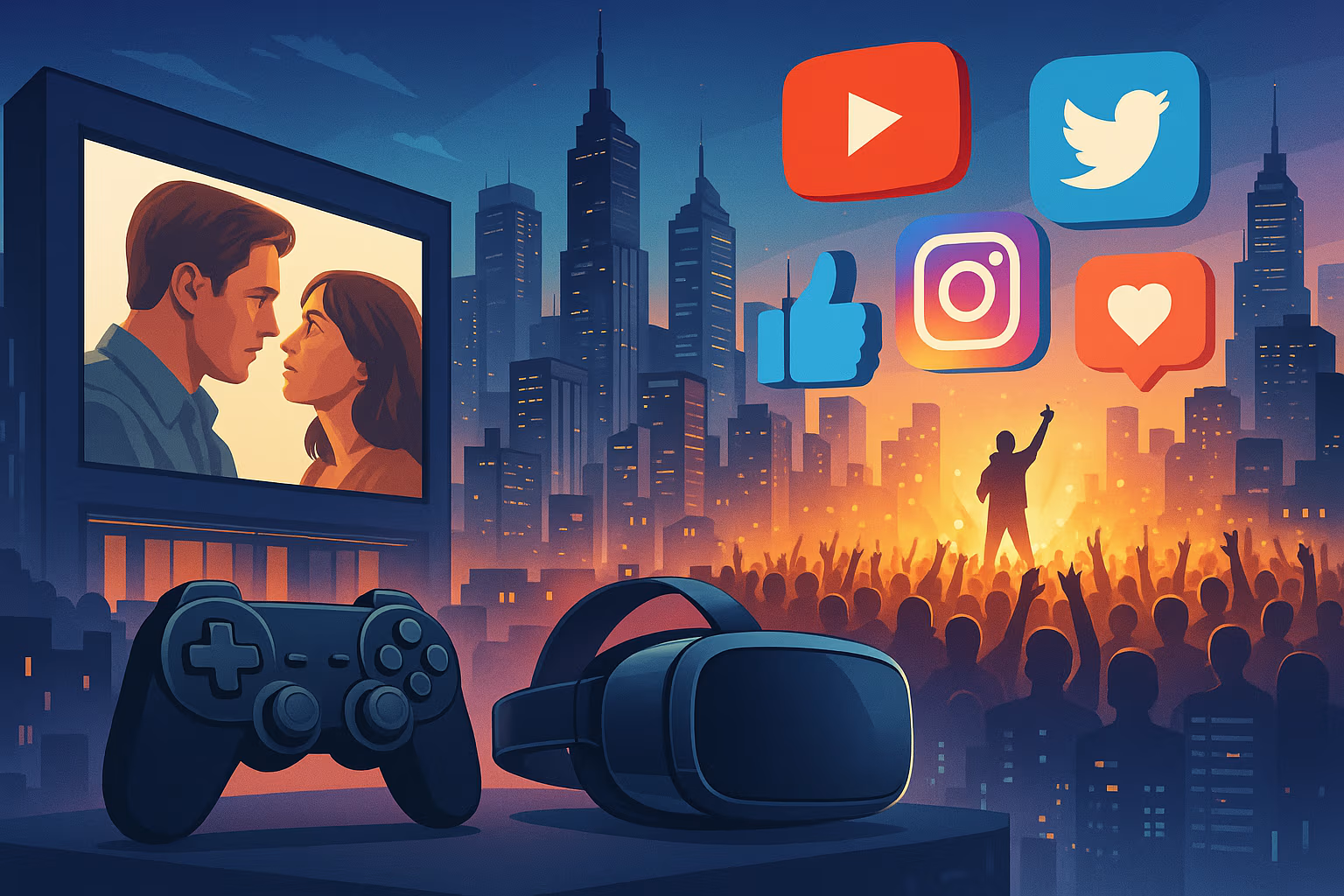Entertainment has been an essential part of human culture for centuries, evolving from simple storytelling by the campfire to a global industry worth billions of dollars. It shapes societies, influences cultures, and creates shared experiences that transcend borders. In today’s interconnected world, entertainment is no longer limited to a single platform or form; it spans films, television, streaming, gaming, live performances, social media content, and immersive experiences. As technology advances, the ways we consume and create entertainment continue to transform at an unprecedented pace.
The Global Influence of Entertainment
Entertainment is more than just a source of fun—it is a powerful cultural driver. Hollywood movies shape global fashion and language trends, K-pop has created a worldwide fan base that connects through music, and streaming platforms have made foreign-language shows like Squid Game and Money Heist international phenomena. This cultural exchange has led to greater diversity in content, encouraging studios and creators to appeal to audiences across different regions.
The rise of globalization has also made it easier for niche entertainment genres to find dedicated audiences. Independent films, regional music, and culturally specific shows now have platforms where they can thrive alongside mainstream blockbusters.
The Shift to Digital and On-Demand Consumption
One of the most significant changes in recent years is the move from scheduled broadcasts to on-demand streaming. Platforms like Netflix, Disney+, and Amazon Prime Video have replaced traditional TV for millions of viewers. Audiences now decide what to watch and when to watch it, creating a personalized experience.
This shift has also impacted how content is produced. Streaming services rely on user data to develop shows and films that resonate with specific audiences. Algorithms recommend content based on viewing history, increasing engagement and subscriber retention.
Gaming: The New Entertainment Giant
Video games have grown from a niche hobby to a dominant force in the entertainment industry, often surpassing movies and music in revenue. Competitive esports tournaments attract millions of viewers worldwide, while immersive story-driven games rival the emotional depth of films.
The rise of virtual reality (VR) and augmented reality (AR) gaming has also added a new dimension to interactive entertainment. These technologies blur the line between reality and fantasy, offering experiences that were once unimaginable.
Social Media as an Entertainment Hub
Social media platforms like YouTube, TikTok, and Instagram have become major entertainment destinations. Short-form video content, live streaming, and interactive challenges dominate digital spaces, creating viral trends almost overnight.
What makes social media unique is its accessibility. Anyone with a smartphone can become a content creator, leading to the rise of influencers who attract millions of followers and shape entertainment trends in real time.
Live Events and Experiential Entertainment
Despite the digital revolution, live events remain a crucial part of the entertainment industry. Concerts, theater performances, sports events, and festivals provide irreplaceable shared experiences. The thrill of being part of a live audience is something streaming can’t replicate.
However, even live entertainment is evolving. Hybrid events—combining in-person attendance with live streaming—allow organizers to reach global audiences, making performances more accessible and profitable.
The Role of Technology in Shaping the Future
Technological advancements are constantly reshaping entertainment. Artificial intelligence (AI) is now used to create hyper-realistic visual effects, personalize content recommendations, and even write scripts. Blockchain technology is enabling new monetization models through NFTs, where fans can purchase digital collectibles tied to their favorite artists or shows.
Immersive technologies like VR and AR are not just for gaming; they are being integrated into concerts, theme parks, and art installations, allowing audiences to step directly into the world of their favorite stories.
Challenges Facing the Entertainment Industry
While the entertainment industry is thriving, it faces several challenges. Piracy remains a threat, particularly for films and music. The over-saturation of streaming platforms has led to intense competition, pushing companies to invest heavily in exclusive content.
There’s also growing concern over the effects of algorithm-driven content consumption. While recommendations make it easier to discover new content, they can also create “filter bubbles” where audiences are exposed only to certain types of entertainment.
Additionally, the industry must navigate cultural sensitivities and adapt to diverse global markets without losing creative authenticity.
The Future of Entertainment
Looking ahead, entertainment will continue to merge with technology, creating experiences that are more immersive, interactive, and personalized. Artificial intelligence may play a bigger role in producing content tailored to individual preferences. The boundaries between different forms of entertainment—movies, games, music, and social media—will likely blur even further.
The metaverse, a collective virtual shared space, could become the next major stage for entertainment, hosting virtual concerts, film premieres, and interactive storytelling experiences. As audiences demand more engagement and personalization, the industry will need to innovate continuously while balancing creativity with technological possibilities.
Entertainment is in the midst of a technological and cultural transformation. From streaming platforms and social media to VR gaming and live experiences, the industry offers endless possibilities for creators and audiences alike. As technology evolves, entertainment will not only reflect the world we live in but also shape how we experience it.





